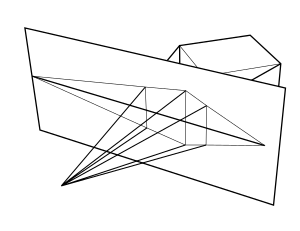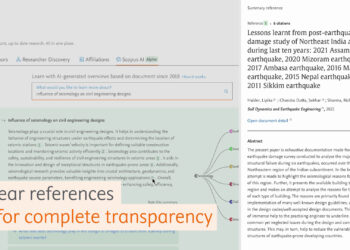
What happens when you get a group of senior librarians, society executives, and publishers together in the same room? We at Wiley found out recently, when we held the first joint meeting between our US Customer Advisory Board and Society Focus Group. As you can imagine, some interesting discussions ensued.
The main impetus for the meeting was feedback from contacts in the library and society communities that, although they each play a critical role in scholarly communications, they rarely have an opportunity to connect directly. Getting all of us together — publishers, libraries, and societies — helped highlight the areas where we intersect, such as serving the needs of professional and research communities, disseminating high-quality content and information, and addressing the challenges and opportunities of open access (OA). Although each group has a different perspective on these issues, we identified a number of opportunities for working more closely together.
Meeting the needs of young/early career researchers and professionals was one such area. All of us want to connect with our communities at every stage of their career, but finding ways to engage with the next generation is particularly important. Ideas we discussed ranged from providing education and training on practical skills like grant writing, scientific editing, peer review, etc to developing new products and services that fit in with how the “born digital” generation study, learn, and advance in their careers. We saw lots of opportunities for collaboration between librarians, societies, and publishers here, but also some sizable challenges. Branding, in particular, is a big issue for everyone – being seen as the trusted provider is understandably important for all three groups. Partnerships, such as co-sponsored events, may therefore be the way to go.
Another issue of great interest to all of us is, of course, OA and what it means for each of our organizations and communities. Our lengthy OA discussion included developing possible future scenarios for libraries, societies, and publishers if, for example, there is a significant increase in funder mandates. One aspect that neither our library nor society partners had previously given much thought to was the impact on authors of having to negotiate myriad different funder mandates and requirements. Many publishers are already working on ways to help authors navigate around this complex future landscape, but perhaps we should also be working more closely with libraries and societies, who operate at the heart of the researcher community and are well placed to provide this sort of additional support.
Quality issues around OA were also a concern for librarians, publishers, and societies alike. Will high-quality peer review continue to be valued or will it be replaced by pre- and/or post-publication commentary that may not be as rigorous? Will usage of the version of record (VoR) decrease as other forms of the article become more readily available and discoverable? How can we work together to ensure that users – whether they are society members, library patrons, or others – understand the value of the VoR and easily find it? And what does all of this mean for the future sustainability and success of our organizations? None of these questions is easy to answer, but we are more likely to be successful at communicating the importance of maintaining the highest quality standards if we are speaking with one voice.
Knowing more about user behavior was another topic of common interest. Societies can feel disconnected from their members and libraries from their patrons as a result of the digital transition. There was a sense from many of our partners that human interaction – and the market intelligence that goes along with it – has been replaced by computers. However, by making better use of web analytics and other data, much of it already being generated by publishers, we should be able to understand more about who our users are, how they find information, what they do with it, and so forth. Sharing this sort of data with our library and society colleagues will help all of us develop that much-needed 360° view of researchers and professionals in our communities.
Which leads me to one final lesson learned from the meeting. All our roles are changing – and often overlapping — in ways that most of us would never have believed possible even a decade or so ago. Librarians are providing publishing services; publishers are building online communities; societies are creating data archives.
So what’s our first challenge? Quite simply, it is to keep the momentum going — to keep having these conversations and to find new ways to work together across all our organizations. Librarians, societies, and publishers have traditionally been allies, and the best chance of ensuring our success and sustainability as we head deeper into the 21st century is to continue to collaborate and learn from each other, in order to support the research and professional communities we all serve.
Discussion
5 Thoughts on "Librarians and Societies and Publishers – Oh My!"
Regarding the looming threat of complex, multiple funder madates that is certainly true for U.S. Federal funding, which is a significant fraction of all published research. See my recent article http://scholarlykitchen.sspnet.org/2013/02/25/confusions-in-the-ostp-oa-policy-memo-three-monsters-and-a-gorilla/.
Note that one solution to the US multiple agency mandates problem is for PubMed Central (PMC) to become PubFed Central (PFC) and handle all federal OA. I hear that PMC is out trying to sell this to the other agencies. In that case the societies and publishers are out of the loop and the VoR is OBE.
The libraries should also be concerned that PMC is a portal that skews discovery in favor of US federal scientific interests, and away from science per se. PMC only links to PMC for the most part. It is basically a closed, inward looking web. PFC will merely expand this discovery bias to the other federally funded disciplines.
One forum for communication among these groups that has existed for over thirty years is the Charleston Conference. Its publication, Against the Grain, draws contributions from all three communities also.
Sandy Thatcher mentions the Charleston Conference http://www.katina.info/conference/. Readers may be interested to know that the Conference will host a plenary session on this topic of this posting in November with panelists Kathleen Fitzpatrick, Modern language Association; Brandon Nordin, American Chemical Society; and Steven Wheatley, American Council of Learned Societies. Tentative program description follows:
“Scholarly Societies, Scholarly Publishing, and the New Information Ecology”
Since the founding of the Royal Society in the 1660s and especially with the development of disciplinary fields in the later 19th century, scholarly societies have established themselves as mediators of the professional lives of faculty and as vital components of the ecology of scholarly communication. In their interactions with libraries, societies may appear primarily as publishers of newsletters, books, reports, journals, indexes, and databases, but they also promote the creation and diffusion of knowledge by serving as hubs for professional activity, contributors to the making of public policy and opinion, providers of education, representatives of the interests of their members, and, more generally, shapers of the institutions and purposes of higher education.
Society operations and outreach programs depend to varying degrees on revenues from publishing and membership dues. Today, however, changing demographics, the academic job market the weakening of library budgets, the emergence of additional media for publishing and establishing scholarly reputation, and the importance of making scholarship available to a broader audience than those who can afford to purchase it challenge traditional society roles and especially the business models that have supported those roles .
Panelists will address the ways in which scholarly societies are addressing the current information environment and adjusting programs and activities as they continue to build and maintain communities of scholars and promote the interests of teaching, learning, and research.
I was very surprised that there was no mention of what appears to be a complete disconnect between some journal subscription prices and the paucity of content. Biopolymers and Journal of Comparative Neurology come quickly to mind as journals in this category.


